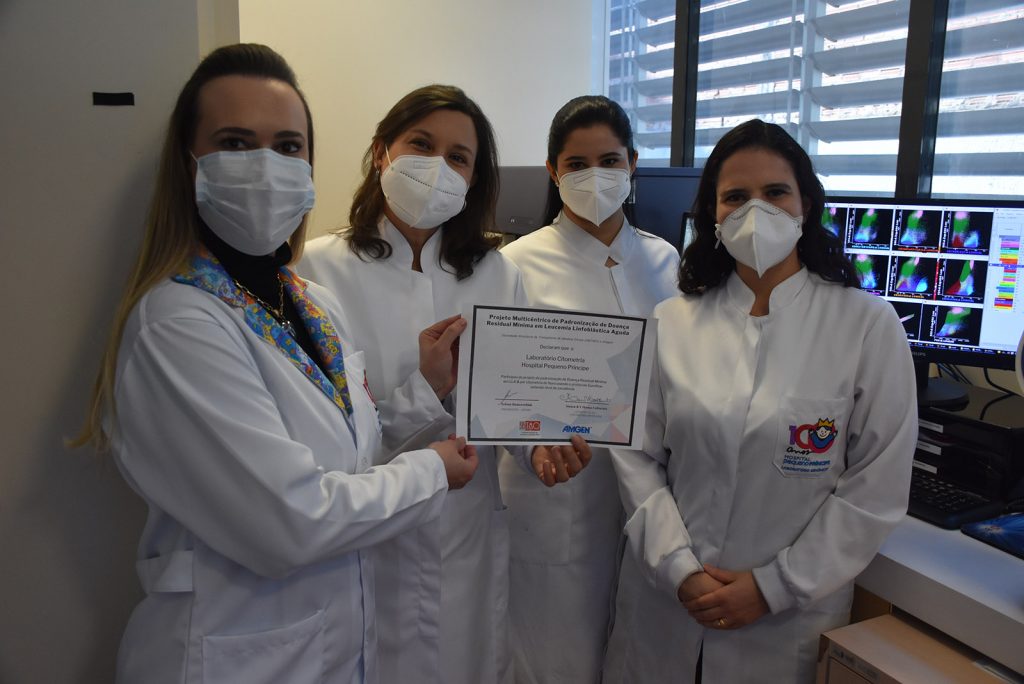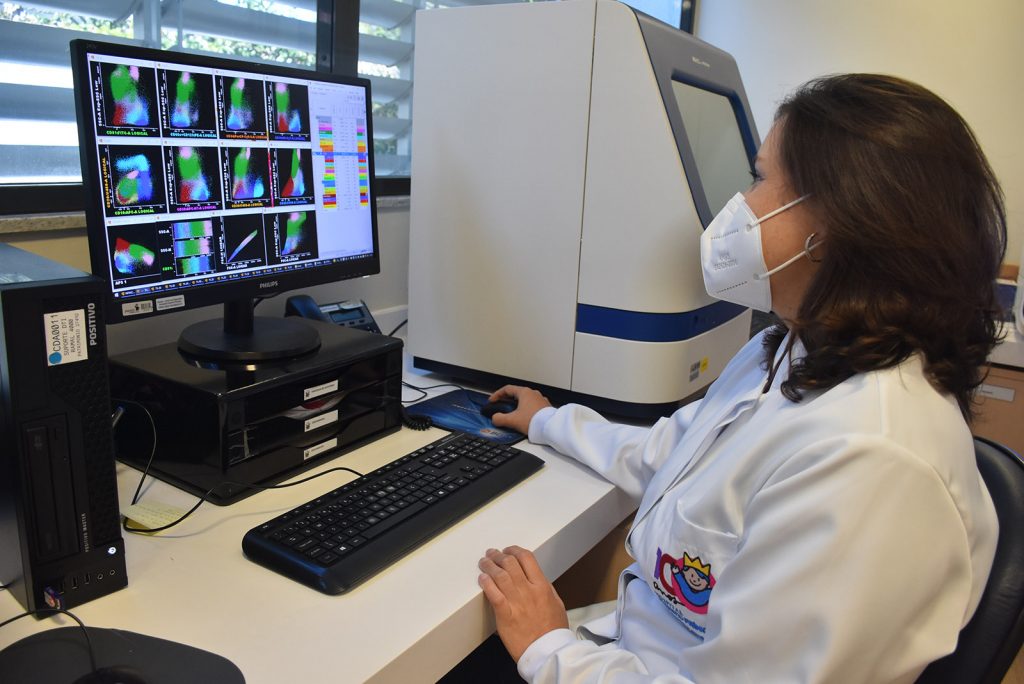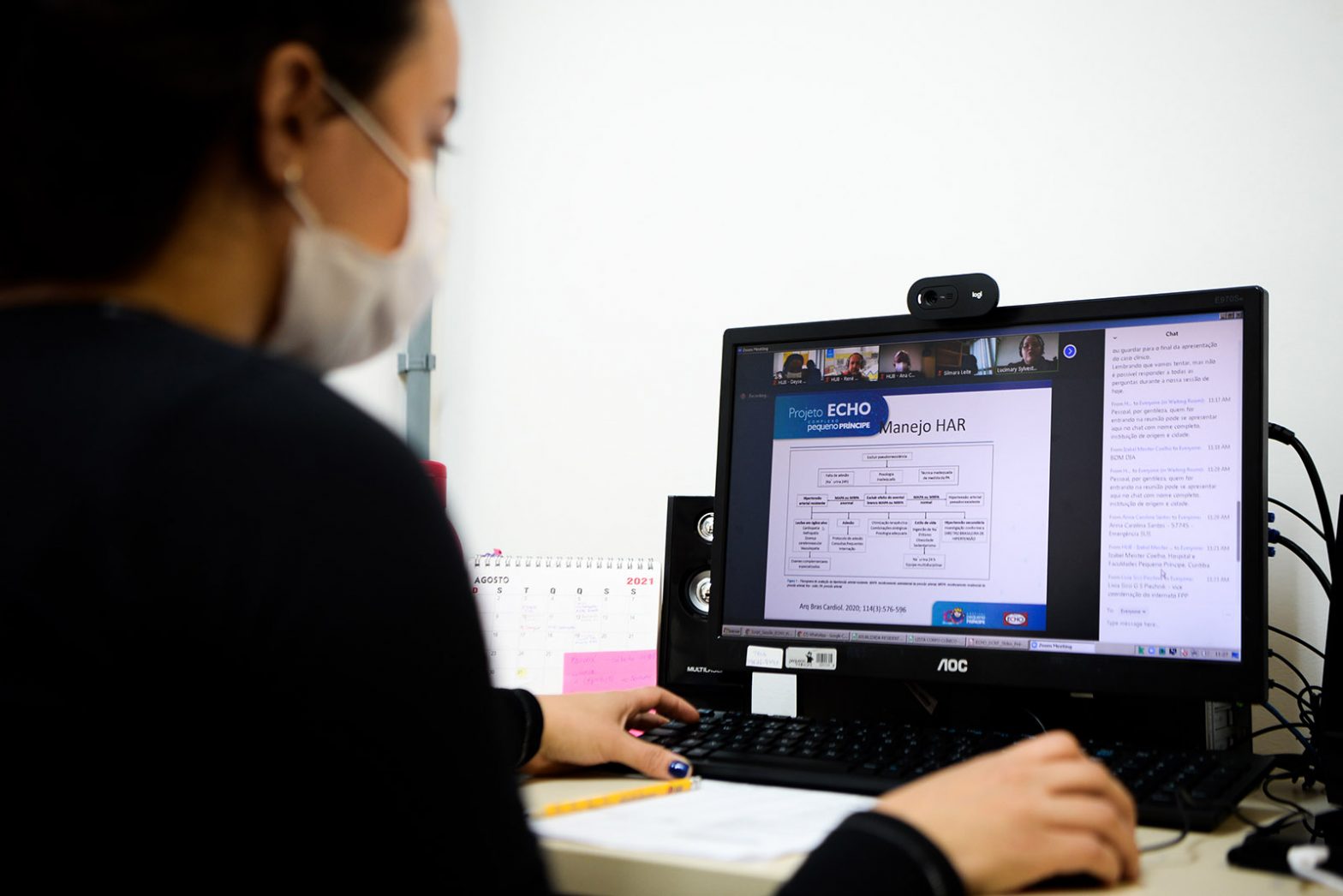Genomic Laboratory is certified for excellence in leukemia tests
The unit is among the first ten in Brazil to receive the certification, which is based on strict international protocols

The Pequeno Príncipe celebrates yet another achievement: the Flow Cytometry Sector, integrated into the institution’s Genomic Laboratory, has been certified for the level of excellence in performing the evaluation of minimal residual disease (MRD) in B-lineage acute lymphoblastic leukemias (B-ALL). With the recognition, the unit is part of a select group of the first ten laboratories in Brazil certified by the qualification of its processes by the EuroFlow international protocol, which requires highly standardized technical procedures.
The evaluation of minimal residual disease in leukemias is extremely important, because it allows the analysis of the response to treatment and, if necessary, allows adjustments and even indication for bone marrow transplantation. ALL is considered the most common type of cancer in childhood. At the Pequeno Príncipe, the cytometry report is under the responsibility of hematologist Fabiola Gevert.
“Since the beginning of the work, in 2018, the Pequeno Príncipe Laboratory seeks parameters already well studied and standardized to offer a method of high sensitivity and reproducibility in the research of MRD by flow cytometry. Besides the rigorous criteria with equipment and technique, it is important to emphasize that this exam also demands a careful and particular interpretation, and our professionals are assertive in this aspect,” emphasizes the Maintenance and Services assistant director at Pequeno Príncipe, Daisy Elizabeth Jose Schwarz, who is also responsible for the Genomic Laboratory.
Granted by the Brazilian Society of Bone Marrow Transplantation (SBTMO, abbreviation in Portuguese) and by Amgen® – partner institutions in the standardization of this evaluation in the country –, the certificate is an important recognition for the Pequeno Príncipe. Through it, it is possible to prove the institution’s commitment to the safety and quality of the examinations performed, essential in the care of children and adolescents being treated for cancer.
“It is gratifying for the Pequeno Príncipe to contribute to and be a pioneer in this process of standardizing the best practices in the country for increasingly more precise complex diagnoses, in order to provide adequate care to the patients who are fighting against cancer,” Daisy concludes.
The exam is performed on patients at the Pequeno Príncipe, but is also available for patients from other institutions. In this case, the contact should be made through the e-mail karine.anjos@hpp.org.br.

About the Pequeno Príncipe Genomic Laboratory
It is an important structure that contributes to the excellence in the early and differentiated diagnosis, as well as in the prognosis and treatment of cancer and other complex childhood diseases. It also provides more security to the therapeutic decision and to the tailored treatment, increasing the cure rates and allowing for the complete remission of the disease.
Since its implementation, about 20,000 patients have been seen, with a total of almost 32,000 tests/examinations performed. The resources for the structuring of the unit came from the National Oncology Care Support Program (Pronon) 2014/Ministry of Health, from tax benefits donations and from events held by the institution, such as the Pequeno Príncipe Gala.
Besides the Flow Cytometry Sector, the Genomic Laboratory is also composed by the sectors of Anatomic Pathology – for the analysis of biopsies in order to elucidate the diagnosis of diseases such as cancer –; Cytogenetics – to complement the diagnosis of the main childhood tumors and leukemia –; and Molecular Biology – which, besides complementing the diagnosis in the hemato-oncology area, performs research on infectious agents such as coronavirus.
More
Pequeno Príncipe Hospital becomes a hub for the Project ECHO
Created in the United States, the initiative promotes the exchange of information among professionals, democratizing knowledge
Protocols adopted by the Hospital guarantee safety to all patients
Doctors warn about the importance of seeking specialized help to preserve the health of children and adolescents








